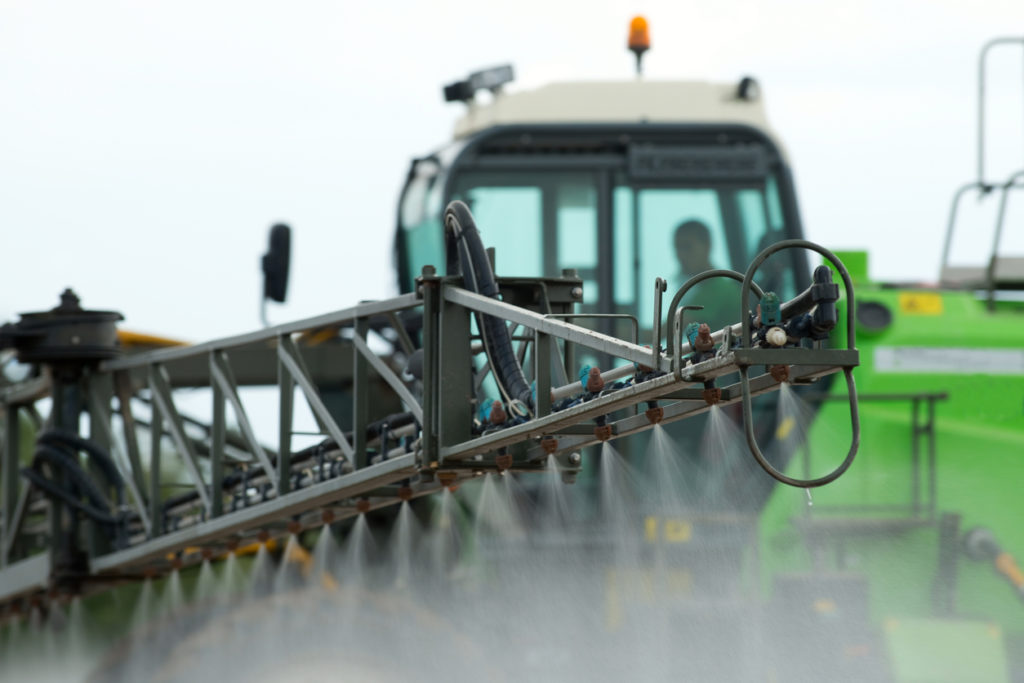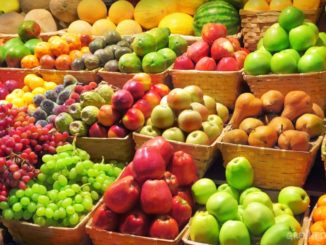
Agriculture MEPs have dismissed outright a compromise amendment put forward to help fund farmers’ transition towards reducing the use of pesticides – and, in doing so, forfeited their only card to play in the debate on pesticides. Natasha Foote Reports.
Lawmakers are currently gearing up for a first round of votes on the EU sustainable use of pesticides regulation (SUR), the vehicle by which the EU aims to slash the use and risk of pesticides in half by 2030, as set out by the EU’s flagship agri-food policy initiative, the Farm to Fork strategy.
However, the ambition has proved a bone of contention among the right of the Parliament and the farming industry, who have repeatedly raised concerns about the financial burden of the transition falling on farmers’ shoulders.
In an effort to address this, the Greens put forward a compromise amendment to the Commission’s proposal, the so-called ‘article 43’, in which it puts forward concrete suggestions as to how to fund this transition period.
Tangibly, it proposes maximising the funding streams available to farmers, encouraging member states to make the most of the funds currently available in efforts to supplement the “limited and increasingly pressured” capacities of the Common Agricultural Policy (CAP).
This includes pesticide taxation, agrochemical producer contributions and state aid, as well as insurance schemes against potential losses while transitioning to adapted practices.
Meanwhile, it also put forward a proposal for farmers to be eligible for financial support linked to the implementation of integrated pest management (IPM). As this has been a legal requirement for 10 years, farmers are currently unable to benefit from extra financial incentivisation for these practices as they must go above minimum legal requirements.
Lastly, it suggests that, by December 2026, the Commission should “propose the creation of a new EU funding instrument for transition and adaptation in the frame of the future MFF”.
“It is absolutely imperative that farmers and other users need to be financially supported every step of the way by sufficient funding and rewarded for their past and future efforts to reduce chemical [plant protection products] PPP use, and their costs fully covered in their transition toward a more sustainable use of pesticides,” the amendment, seen by ARC, stressed.
Which Money? What Exchange?
However, despite repeatedly voicing concerns that there is not the means to finance the transition, a huge majority of groups, including the centre-right EPP as well as the right-wing ECR and ID groups, rejected the proposal outright.
Asked by ARC, a spokesperson for the centre-right EPP said the decision to decline the amendment was “about money”.
“We are asking [for] new money for new obligations,” the spokesperson said, adding that the CAP budget is “already insufficient”. As such, the group wants “absolutely no link to the cap in terms of funding”.
Asked what it would prefer, the spokesperson suggested “some other budget line, other new means”. “[The] CAP is agreed and running and should be respected,” they added.
However, for those in favour of the amendment, this position was “frustrating procedurally, and illogical and hypocritical in terms of content”. “[This is] not helping farmers at all, blocking them from accessing funds and covering their costs, shooting themselves in the foot,” a Parliament insider said.
Meanwhile, the Greens lambasted the fact that the amendment was dismissed outright without an exchange.
“We were not aware this would be a binary choice, and had expected a technical exchange,” an email correspondence, seen by ARC, reads, adding the group would “appreciate feedback [… on how to] see the text changed to make it politically acceptable”.
In not backing the compromise amendment, the agriculture committee, who shares competence on the file with its environmental counterparts, also chose to forgo its only element of power in the legislative process. This is because the only competence of the agriculture committee on the SUR file is in the use of EU farming subsidies.
A Parliament source told ARC that they suspected the move was to “sabotage” the whole SUR proposal completely. “My reading is that they think it will be a stronger political message if it’s just rejected out of hand,” the source said, calling the move “hypocritical”.
The source added that this dossier acted as an interesting “test” for how serious the EPP is as a negotiating partner. “If the EPP waters down the proposal only to vote against it, they are not a trusted negotiation partner,” the source said.
The news comes on the back of calls from Green Deal chief-hopeful Maroš Šefčovič for more funding instruments to smooth the sustainable transition for farmers.
“It’s very clear for me that we definitely do not want our farmers to bear the costs for the transition,” he said during a hearing in front of the European Parliament on Tuesday (3 October), adding it is “our common task” to make sure that this does not happen.
He added that he would work hard to make sure that they look at all eventualities to do this during the discussions on the revision of the Multiannual Financial Framework, the EU’s seven-year budget. “Simply agriculture looks differently than it was before, and we have to find a way [of] how we would develop the new financial instruments which would bring more investment and more money to agriculture,” he said.
The European Parliament’s agriculture committee will vote on the SUR file on 9 October.
More





